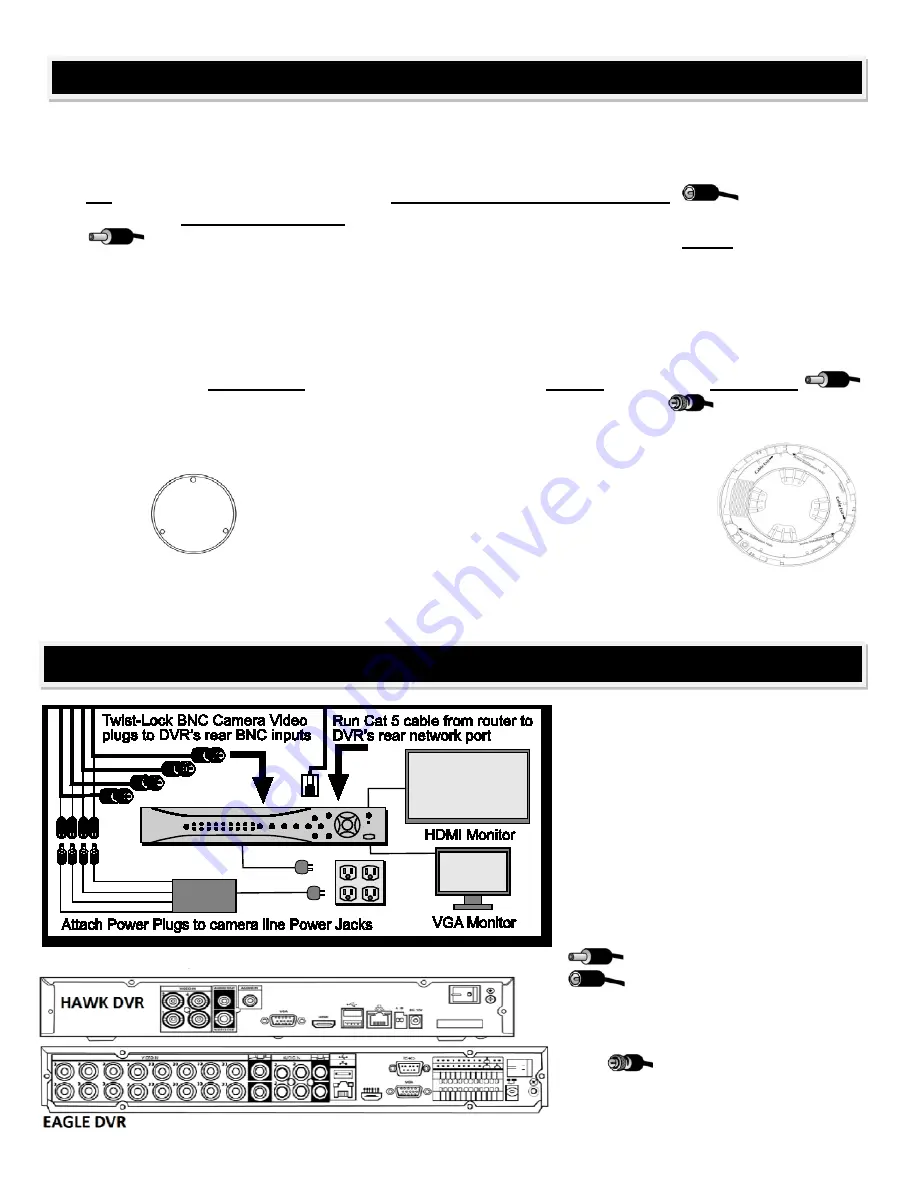
You will need the following tools for installation: An OSHA approved ladder, Phillips screwdriver, power drill &
3/4” and 3/16” bits, rubber self-seal tape or heat shrink tubing, and some caulk or sealant for outdoor cables.
A section of stiff wire and some masking tape can help run the camera cables.
TIP: When you run your camera wires, MAKE SURE that the POWER JACK
end of the
video cable is located at the DVR end to connect to one of the camera power supply plugs
there. It’s a good idea to set up the system on a table or workbench before installation,
free just the ends of each cable, connect and test & familiarize yourself with connections.
•
Check local laws regarding installation & aiming of outside cameras, stay clear of AC electric wires
& fixtures, and be considerate of your neighbor’s privacy. Determine your camera locations, and run
the cables to each camera. Do not point cameras directly into light sources, or directly into the rising
or setting sun which may cause damage to the camera’s sensors that will not be covered under
warranty.
IMPORTANT
: Make sure that the cable at the
camera
ends with the
power plug
so that it will correctly attach to the camera’s power lead. The
BNC plug
will be the same on
both cable ends.
•
Use the included base mounting templates to mark the mounting screw
holes. Pre-drill the screw anchor holes with the 3/16” bit,
and drill the cable access holes with the 3/4” bit. Loosely
attach each camera in position with one or 2 screws, attach
each camera’s BNC video and power leads to the cable,
and fish the camera wire through to the DVR location.
DO
NOT CUT CAMERA WIRES
- this will void warranty. If the connections are exposed to weather,
seal with heat shrink tubing or self-adhesive sealing tape, then finish mounting the camera bases
and caulk/seal any outside holes.
Place the DVR and monitor within reach
of the provided 60 foot camera cables
and a wall plug AC power source (a
battery backup UPS is recommended). If
you are attaching a monitor using the
HDMI output, remember to locate the
unit so that is within reach of the HDMI
input on your TV or AV receiver. At the
DVR, attach the DVR power supply,
your VGA monitor & power supply, and
camera power supply to AC power, and
each camera cable’s
power plug
to one of the 4
power jacks
on the camera power supply.
On the back of the DVR (or on the multi-
input cable on the touch screen CBT
DVR), push in and twist-lock the
BNC
plug
connector for each camera
to the chosen channel’s BNC input,
attach the USB mouse, power on &
begin DVR setup.
DVR INSTALLATION
CAMERA INSTALLATION






















